
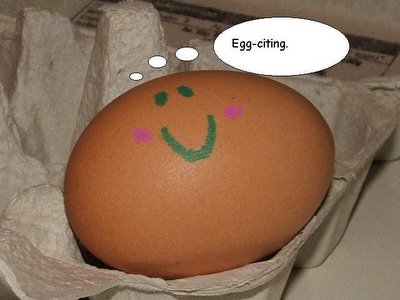
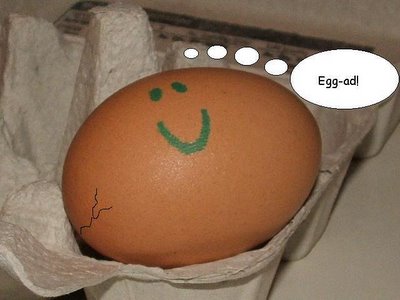

'...what can one do, if the only straightforward task of every intelligent man is pointless chattering, the deliberate pouring out of emptiness.' Dostoevsky, Notes from Underground

Look over there, friend Sancho Panza, where more than thirty monstrous giants appear. I intend to do battle with them and take all their lives. With their spoils we will begin to get rich, for this is a fair war, and it is a great service to God to wipe such a wicked brood from the face of the earth
Take care your worship... those things over there are not giants but windmills, and what seem to be their arms are the sails, which are whirled round in the wind and make the millstone turn.
‘Oh my goodness! ... Didn’t I tell your worship to look what you were doing, for they were only windmills? Nobody could mistake them, unless he had windmills on the brain.’


I really can’t speak highly enough of Good Night, and Good Luck. George Clooney’s work as a director puts me in mind of the excitement I felt when it became apparent that Clint Eastwood was a new directorial talent. I’m not sure that Clooney ever attracted the disdain for his acting work that Eastwood did for all those spaghetti westerns, but, if I may say so, it’s a bit of a thrill to learn that such a sexy man has a political conscience and prodigious talent.

Monday night I slept in an air-conditioned room accompanied by V’s dog Taffy, whose head is easily turned away from any loyalty to his owners towards their guests. He’s a total floozy, snuggling beneath the sheets and licking you without ceremony. Tuesday morning while everyone else had gone to work, Taffy alternated between chewing various toys and snaffling an apricot pit which he then proceeded to eat! I let him have the stone thinking he’d lick it a few times and then reject it as inedible, but no, he crunched right through it. I thought after he’d broken it up I’d have to pick pieces of it from all corners of the room, but no, there is nary a skerrick remaining! He’s sleeping on the floor at the moment, but probably only because he’s exhausted himself by charging into the yard and barking at the slightest passing butterfly. Although, if I get up to go to the toilet or check the progress of my toast, he follows me and regards me with big eyes. In the instance of my visit to the toilet, and later the shower, when I emerged from those small rooms he was sitting in front of the door, patiently waiting for me to reappear.
Rather than dwelling on the cause of my involuntary exile—I’m sure you’re all over hearing about it—I thought I’d make better use of my energy and review the various additions I’ve made to my sidebar. I’ve added the section, ‘Now Screening’, which, following the template of the ‘Reading Order’ list, is a chronological record of the films I’ve watched lately at the cinema, where 1. is the most recently viewed. If you didn’t blink, you may have noticed that for a brief moment I’d included a couple of DVDs in the list, Mystic River and 21 Grams. I have owned both of these films for what must be at least six months now, but before the Christmas period I hadn’t felt compelled to watch them. I suspect my reluctance derived from the fact that I prefer to watch films at the cinema in the conditions for which they were created. Sitting down at home for the amount of time required to watch a feature-length film on a television screen without breaks is not something I like doing. It just feels wrong. An hour long television program, complete with commercial breaks suits the home environment and all its attendant distractions far better. Even when I watch television programs on DVD, there is at least an obvious point at which to stop the program and wander around the house for a bit. Between that respect for the differences in the two media (although the inability to sit still and focus could just be a symptom of a poor attention span) and the fact that I still have episodes of The Sopranos and Six Feet Under to make my way through, to say nothing of the copious amounts of free to air television I record, I just haven’t had the time or inclination to watch either Mystic River or 21 Grams. When I finally watched 21 Grams, I could see why Dr H had kept asking me whether I watched it yet or not. Since she was overseas when I finally did watch the film, and therefore not around to talk about it with, I included it in the ‘Now Screening’ list as a way of indicating, however minimally, how much I liked it. But then I went to see a few more movies at the cinema and because of that, the inclusion of the DVDs was going to push off the list another film I had yet to have a good discussion about, Broken Flowers (Jim Jarmusch 2005).
The few people I had encountered who had seen Broken Flowers had not particularly liked it. The criticisms were based on the representation of the women in the film. The argument was that the female characters were stereotypes and satellites to the central male character played by Bill Murray. I know there was a time in my life when I would have made a similar judgement of the film, but I think in the case of Broken Flowers it’s important to consider which actresses accepted the roles of these apparently formulaic women. Sharon Stone, Frances Conroy, Jessica Lange and Tilda Swinton are not stupid; they are smart, talented and successful women whose feminist credentials are part of what they bring to any role. I have loved watching Sharon Stone mature as an actor, I was thrilled to see her in this film and I had the same reaction to Frances Conroy’s presence, since I am a fan of Six Feet Under. Just looking at Conroy’s history of television appearances as well, I notice that she made guest appearances in a lot of the MTM productions of the 70s and 80s, including Hill Street Blues. Jessica Lange’s filmography is peppered with classics of contemporary American cinema; and Tilda Swinton first established herself, as far as I am aware at least, in the film adaptations of Virginia Woolf’s novel Orlando and Louise J. Kaplan’s feminist classic Female Perversions. I am not naïve enough to suggest that women, especially in Hollywood, are spoilt for a choice of characters who are not accessories to their male counterparts, but it’s important to know that Jim Jarmusch is not a ‘Hollywood’ filmmaker. When I asked the people who didn’t like Broken Flowers if they had seen other films by Jarmusch, it turns out they hadn’t heard of Dead Man, to say nothing of Coffee and Cigarettes, Ghost Dog etc, etc. I thought that Johnny Depp’s role as William Blake in Dead Man would have ensured they would at least know one of Jarmusch’s films.

I think the lack of familiarity with Jarmusch’s body of work might offer part of an explanation as to why his new found audience—at least those members I’ve encountered—hasn’t necessarily embraced Broken Flowers. It is recognisably a Jarmusch film, from the episodic narrative structure and the road story, to the shot composure, especially in the awareness of transport in the tracking shots and the general absence of low and high angles. If you’re aware of Jarmusch’s visual style and thematic concerns then your appreciation of this film is amplified by that knowledge. Of course the counter-argument posed to me on this point was ‘But, shouldn’t any film stand on its own merit?’ The short answer to that question is ‘Yes’.
The long answer to that question is, even if you put aside Jarmusch’s body of work, then you have to at least pay attention to his engagement with the story of Don Juan, which is signalled early in the film as a film version of Don Juan is shown on a television (the presence of that appliance is yet another ‘Jim Jarmusch’ moment). In Broken Flowers, Don Juan has travelled, figuratively, to the USA. The relocation of Don Juan has happened throughout various media since he was first created by a monk in Spain in 1630 and so it is in this tradition that Jarmusch writes Don Johnston. Don Juan. org, a website dedicated to the ‘travelogue’ of Don Juan, suggests that in spite of his constant migration, ‘[s]trangely, Don Juan's adventures remain largely unchanged, they take on, with not a little subtlety, different national characteristics and allow the authors many opportunities to express themselves on the morals of their countries and of their times’. And so we have Don Johnston (Bill Murray), the North American Don Juan, who is not to be confused, although he often is, with Don Johnson from Miami Vice. Don Johnston is a contemporary libertine, a bored and wealthy computer entrepreneur who seduces women with little pause until he receives an anonymous letter from one of his former lovers claiming he fathered a child over twenty years ago. While Johnston is not motivated to contact his child, he is urged by his neighbour, Winston (Jeffrey Wright), to pursue the mystery, and so he embarks on a journey to visit the women he knew at the time of the alleged conception.
At this point I think the title of the film is significant (sorry for stating the obvious) to the extent that ‘broken flowers’ shifts the subject of the film away from the libertine character towards the women whom he has used and abused and even had mutually satisfying relations/hips with over the years. Don Johnston is confronted with the consequences of his emotionally nomadic life, but the film also presents a portrait of contemporary North American femaleness in all its diversity. Following the ‘women’ link on the England 17th Century section of the Don Juan website, I learned of the playwright, Shadwell’s version of Don Juan, The Libertine. Shadwell was writing in the context of the Restoration Theatre, a movement that saw more opportunities for women to play female roles on the stage. Apparently Shadwell’s Don John was drawn to be critical of noble society and is thus unrepentant as he goes about indulging his every whim which includes a not insignificant number of murders and rapes. Another innovation of Shadwell’s is reported to be the character of Maria, who disguises herself as a man in order to avenge her fiancé’s death at the hands of Don John. In adopting her disguise, Maria is afforded equal status to the principal male character and thus she is a significant portrait in a society where women were ‘often reduced’ to slavery, especially through the institution of marriage as it stood at the time.
In the contemporary North America of Jarmusch’s portrayal of Don Juan then, how can the women characters be interpreted through a more sophisticated lens than the one that renders them as nothing more than caricatures? To begin with, I think that Don Johnston’s crime in this film, more than his fleeting relationships with women, is his initial reluctance to take on board the responsibility a father owes his child. Murray’s character, indeed his whole existence, is shown in stark contrast to his neighbour, Winston, who embraces a whole passel of offspring and just one woman, his wife Mona (Heather Alicia Simms). In approaching Jarmusch’s women characters then, we are potentially encountering a woman who is a single mother, who has over the years assumed all of the care for Johnston’s child and ensured his or her well-being. The first of Don Johnston’s former lovers whom we meet is a single mother, but not to the hero’s child. Laura Daniels Miller (Sharon Stone) is the primary care giver to the very precocious Lolita, who tests her burgeoning sexuality on Johnston by appearing naked before him while he waits for her mother to return home. Johnston goes outside to wait for Laura, who promptly invites him in for dinner and they have sex for old times’ sake. The next of Don’s old flames is Dora (Frances Conroy) who is puzzled to see him; she is now married to a real estate entrepreneur and together they live in curious suburban dream without children from any relationship, current or former. Jessica Lange’s character, Dr Carmen Markowski, an animal communicator, has well and truly moved on from her liaison with Don, claiming not to eat or drink in order to avoid catching up with him over either fare. Further, Don is summarily sent on his way by Carmen’s assistant and current partner (Chloë Sevigny), who suggests he never returns as she flings the flowers he bought as a gift for Carmen through his car window. The final woman that might have sent the letter to Don is Penny (Tilda Swinton) who now lives on a remote and run-down property. It isn’t clear what prompts her reaction to seeing him again, but it can’t have been any fond memory that has her screaming ‘So what the fuck do you want Donnie?’ before calling for back up from a couple of tough looking men. I haven’t mentioned the woman who we see leaving Don in the first moments of the film, Sherry (Julie Delpy), but I think that she, along with all of the other women, demonstrate that none of their lives are defined only through their relationship with Don Johnston.
There is a lot more to say about Broken Flowers but, if you haven’t seen it, that’s probably enough plot spoiling on my behalf, and indeed enough posting full stop. Dr H has returned from overseas (bearing a very nice gift of Venetian glass for me) and I finally got to have a discussion with someone who knows Jarmusch’s work. She said she didn’t like Broken Flowers either, a reaction which she attributed to not liking Bill Murray as an actor; it’s the old Woody Allen conundrum, for her Bill Murray is not credible as a romantic lead. And she found it difficult to believe that one man would be attracted to so many different kinds of women. There is also the fact that she watched it nine times in a row on the flight to Milan because her monitor on the Cathay Pacific flight was stuck on that channel. I still like it and even want to watch it again, but I will draw the line after the second viewing... perhaps the third, at least if it's in succession.

If the book had gone no further than this variation on a theme … Don Quixote would have been little more striking than that other madman of Cervantes' invention, the student in one of the Exemplary Novels who imagined that he was made of glass, and took precautions accordingly. But … Don Quixote came alive in his author’s hands (12)
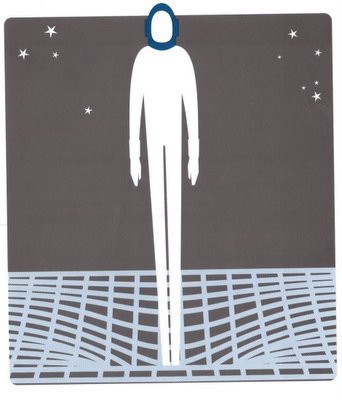
'Near a solar-mass black hole the effects would be so strong they'd spaghettify an astronaut in pretty short order' Paul Davies How To Build A Time Machine (2001: 60-1)
the weird habits meme, which requires the blogger to fess up to his or her five weirdest habits, as the name might reasonably lead one to expect.
My first thought upon accepting Ms Tartan’s meme was about a habit I acquired from one of the zine publishers I interviewed in the early days of my Master’s degree. S. happened to be visiting from interstate so I met him at a landmark well-known by travellers to Brisbane, the Roma Street Transit Centre. We walked further into the city centre before catching a bus on the way to the University. As we were walking, I noticed that each time, after we had crossed the street at traffic light intersections, he paused to push the button that indicates someone is waiting at the crossing, before continuing on. As an inveterate walker, I thought it was a fantastic idea. Who hasn’t waited endlessly at a crossing looking for a break in the traffic only because you didn’t push the button at the right time in the signal’s cycle? If you’re familiar with the traffic lights in question, it’s even more frustrating to know that normally you would be able to cross, but because the pedestrian stage in the signal cycle has been missed you are left on the side-walk twiddling your toes. Thus the first weird habit I will admit to, in a list arranged in no particular order, is:
1. I push the walk button at traffic signal pedestrian crossings after I have traversed the crossing
Contemplating the task of the meme further, I wondered what weird habits I could confess to that I hadn’t already enumerated in detail in other posts on this blog. What I found thinking by thinking about those quirks I’ve already admitted to was that I became aware of previously unconsidered habits that were related to those I had already written about.
I’ll start with the weird tendency revealed in my last post. I didn’t frame it then in terms of strange behaviour on my part, but I’m sure you all thought it was a little on the edge of sanity:
2. I creep around the outside of my apartment building at night time and peer in my disruptive neighbour’s window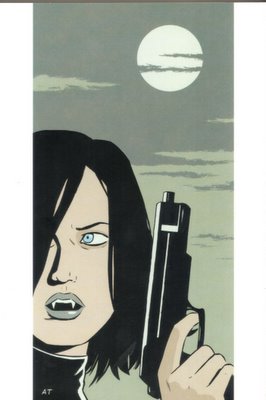 Alright, some people might consider that being a peeping Thomasina is in fact criminal behaviour. I will plead temporary insanity. What my creeping reveals is that when I am indignant about something, I will stop at very little in my pursuit of evidence that can be used to bring about an end to the cause of said indignation. I have since composed a letter enumerating the disruptive neighbour’s infractions and it has been signed by two thirds of the other tenants. On another occasion, when I was mad at the traffic/pedestrian arrangements made to accommodate the sports crowds that flood my neighbourhood, I sent five copies of a letter to various levels of government and facilities/business managers expressing my displeasure. Soon I had local members, community liaison officers and police sergeants contacting me to discuss the issue... Actually, now I’m scaring myself. Moving right along.
Alright, some people might consider that being a peeping Thomasina is in fact criminal behaviour. I will plead temporary insanity. What my creeping reveals is that when I am indignant about something, I will stop at very little in my pursuit of evidence that can be used to bring about an end to the cause of said indignation. I have since composed a letter enumerating the disruptive neighbour’s infractions and it has been signed by two thirds of the other tenants. On another occasion, when I was mad at the traffic/pedestrian arrangements made to accommodate the sports crowds that flood my neighbourhood, I sent five copies of a letter to various levels of government and facilities/business managers expressing my displeasure. Soon I had local members, community liaison officers and police sergeants contacting me to discuss the issue... Actually, now I’m scaring myself. Moving right along.
The next thing that others have indicated they consider to be weird about me is:
3. I let a spider keep its web just outside my front door
When my neighbour, N., came around to read a draft of the letter to the property manager, she asked me if I was keeping a pet. I mumbled something about how I had ‘thing’ about destroying spider’s webs. When my sister V. visited me, she looked at it and suggested that I use a stick to relocate it to the mango tree. The thing is, I don’t really want to risk touching the spider. She’s not in my way and she has learned to cope with the opening and closing of my windows each time I leave home and return. I explained to my sister that I’d seen a report on global warming and climate change on the 7.30 Report and that in addition to the usual plethora of disappearing frogs, they had shown a picture of a spider, thereby suggesting they were affected as well. It confirmed what I had noticed over the past few years. When I first moved into this flat, I couldn’t walk through the green block next door without encountering at least two spiders’ webs stretched between the trees, but in the last couple of years the passage is always clear. I’m not sure that house-training spiders is the solution, but I always think of the news report when I see the spider’s eight eyes looking at me.
Related to the concerns this spider habit reveals is another. It’s important to know that I don’t think of it as weird and so it won’t be listed as one of my habits, but in the context of being in an English and Media Studies environment, I have been assured that this behaviour renders me a ‘geek’. This charge against my person occurred when in casual conversation, several days after the screening of the AFI Awards, I said that I hadn’t watched them, instead I had watched the final of The New Inventors to learn who the Inventor of the Year was. I was quizzed, ‘so, you’re a teacher and scholar of film and television, and you didn’t watch the AFI Awards?’ ‘No’, I said, ‘did you know the Inventor of the Year has discovered a way to effectively recycle every aspect of tyres? It’s amazing! Think of what an enormous global problem old tyres are; think of the environmental revolution about to take place!’ ‘Oh my God’, they said ‘you’re a geek!’ ‘I bought the New Inventors Magazine, as well. Did you know...?’ ‘You’re a geek!’ So, I liked science at school. I nearly went to uni to become a food technologist. Make something of it.
I’ve recently learned another thing about myself that might be construed as odd. The discovery was prompted by reading the list of weird habits of Lucy from Always Listen to Your Pig Puppet, another recipient of Ms Tartan’s meme. Lucy never wears black, she thinks it’s depressing, even if her mother is convinced it suits her the best. Lucy’s revelation provoked a train of thought, which goes like this:
When I was a teenager I wore black a lot. My friends wore black too. Once an old man harassed us as we emerged from Sportsgirl in Cairns, demanding to know why we wanted to wear black. Of course we just ignored him. The Smiths were an influential force at that time in my life, I still recall the song lyric, ‘I wear black on the outside, because black is how I feel on the inside. And if I seem a little strange then that’s because I am...’ Well, it’s taken a lot of work, but I have finally moved on from that depressive teenage state. I still have a fondness for black, however, which cannot be wholly attributed to lingering in the halls of English departments. I buy clothes, on average, two times a year. I am very systematic about my shopping; I’m not an impulse buyer at all, something which can probably be attributed to being a student for so long. When I shop for clothes it’s because the season dictates I must have short or long sleeves or I have worn out the purchases from last year’s season, so I go with a very practical mindset, asking myself what I will get the most wear from that will be suitable for a range of occasions. This is where black comes in, and white for that matter. I always buy a black shirt and a white shirt when I go shopping because they go with everything—I wear neither of these ‘colours’ in skirts or trousers. I usually get a blue shirt as well, because I am vain enough to want the compliments I get about my eyes when I wear blue. Lately I have gone crazy and added a pink shirt to my list, because that widens my options for coordinating with the darker brown skirts and trousers I own.
While you might think this approach to clothes buying constitutes a strangeness on my part, in fact the strange part of it is yet to come:
4. I only purchase clothes from Sussan’s, absolutely nowhere else
When it comes to underwear, I do branch out and buy that in sales at Target, but probably only because Sussan’s doesn’t sell it. It’s just so much easier, the sales staff don’t bug you, and ‘this goes with that’ and all that, means I can always match my clothes in the most economical way. I really don’t enjoy shopping for clothes at all.
The quirk that will complete my fulfilment of Ms Tartan’s meme begins with a reflection on something that is probably all too apparent to those readers who are still awake at this point. Since starting this blog, I have noticed that behind the most fleeting of my thoughts lies one thousand words of explanation—at least. I seem incapable of writing short posts, in fact, I have given up apologising for rambling on and on and on. Is this an endearing quirk or just annoying verbosity? Another explanation for the length of my posts is in the aesthetic realm. I’ve mentioned before that I prefer to display only the latest post on my index page, the problem with this decision is that I have an aversion to the look of that page when the side bar exceeds the length of the latest post, thereby leaving a wasteland of space on the page. As the length of the side bar is dictated by whatever I decide to add to it, the longer it becomes, the longer my posts have to become in order to avoid having that black hole on my index page. At the moment the posts need to be around a thousand words to assuage my discomfort. I’m not uncomfortable if the post is longer than the side bar, the space on the right hand margin makes aesthetic sense to me.
This compulsive obsession with filling inappropriately empty spaces extends, for me, to the writing of text messages, thus:
5. I like to use all the space available to me when I send sms messages on my mobile phone
Obviously, sometimes I just need to get over this tic and the same goes for the blog posts, so often a very stern internal dialogue takes place, to the effect of ‘Get over it’, and it works, but it still bugs me. On the text messages, I guess I also think if you’re going to be charged the same for sending ten characters as four hundred and fifty-nine, then you might as well write the latter. This goes to the role of text messages in my life. I think one of the things that cemented my friendship with Dr H was text messaging. Since we both worked at far flung university campuses that required a lot of to and fro bus and train travel, we had a sort of unspoken agreement to keep each other company during our respective travels. If you’d had a bad class, you could emote about it and bolster each other’s sense of self worth. We have also used text messaging to keep company in our respective homes. I appreciate the value of sms for letting people know you’ve been caught in traffic or to locate someone in a crowd, but Dr H and I have also discussed topics like the relative merits or lack thereof of Heidegger and Wittgenstein via text messages. Dr H has noted that my text messages are perfectly punctuated and grammatical, and it’s true, that is another text related quirk I have; I hate the mangled language you get in many text messages. My sister F. is the worst, I have told her I feel like a four year-old struggling to comprehend the black bugs in front of me when I read her messages.
The rules of this meme business dictate that I pass this on to other people, so on that note I will end the litany of my weirdness and pass on the baton to Spam (aka dogpossum) and Tseen, who writes Banana Lounge. I hope only two batons is still fulfilling the meme codes of conduct. I didn’t like to send it on to people whose blogs I read but haven’t ever commented on. I worried that it would be rather presumptuous to introduce myself with ‘Hello, you’ve never heard of me, but you’ve been memed’. Is there an agreed upon etiquette about this?




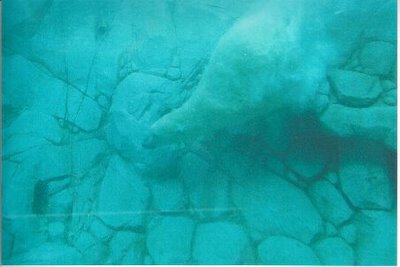
And if any of the aforementioned creatures should get out of hand well, Batman and Robin, that irrepressible crime-fighting duo, can be called upon to save the day! These photos record a visit to Movie World--strictly for research purposes--earlier this year:

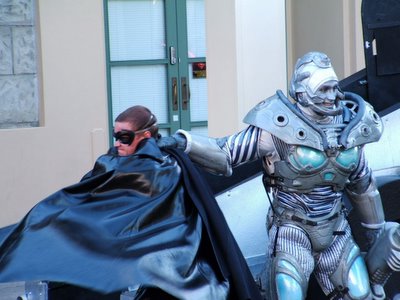

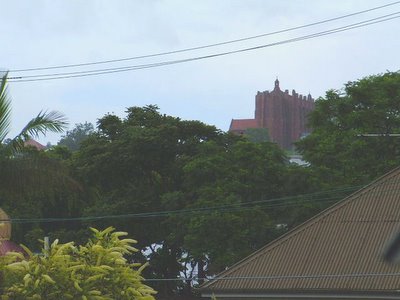
This is one of the views from my 'balcony' (I've put that in scare quotes because it's really too grand a title for my little entrance platform that hangs in mid-air). The church is St Bridgid's Catholic Church, its colour gives the suburb of Red Hill its name.

Here's a picture of the spider that guards my front door. Isn't perspective a wonderful thing; it makes her look as big as the recycle bin across the road. Even though you can't quite see the detail of her web, the drops of water mark its presence.

This picture is for dogpossum. I know if she saw it in person it would send her allergies crazy, but I think she will appreciate looking at its fat witchetty grub flowers, which are just so luscious the way they overtake the foliage. It attracts bees too--somewhere there is some very nice honey to be had. If you look in the top left-hand corner you can see the edge of the mango tree that nurtures the hairy caterpillars right before they crawl into my flat, transform and learn to harrass me in another way, as moths that dive bomb me when I'm trying to read in bed.
 It’s that time of year again. Yes, it’s the annual migration of the hairy caterpillars from the mango tree outside to the interior of my flat, where said caterpillars seek out suitable places to cocoon themselves and so make the transition to fuzzy headed moths. What constitutes a suitable place is a mystery to me; there is no pattern I can detect. I think they are emboldened by their hirsute armour, because I find them everywhere: on the side of the bin in the kitchen; on the mat in the toilet; curled up on the carpet near my bed; making their way across the sitting room into my dining area, oblivious to the threat of my footsteps. Sometimes I open my front door and they rain down, landing on the ground tucked up into small pom poms, thwarted in their attempts to squeeze in under the door frame. The first time they arrived, I gathered them up with a dustpan and brush and put them outside on the grass. On occasion, when I was feeling particularly encroached upon—and still not sure to what extent they presented a danger to me—I would tip them out from my kitchen window and watch them plummet to the concrete below. I have become much calmer about the intrepid hairy visitors in the seven or so years I’ve lived here now—the longest I’ve lived in one place in my entire life (actually, that milestone was passed about three years ago)—but that first summer, well, I was not so sanguine.
It’s that time of year again. Yes, it’s the annual migration of the hairy caterpillars from the mango tree outside to the interior of my flat, where said caterpillars seek out suitable places to cocoon themselves and so make the transition to fuzzy headed moths. What constitutes a suitable place is a mystery to me; there is no pattern I can detect. I think they are emboldened by their hirsute armour, because I find them everywhere: on the side of the bin in the kitchen; on the mat in the toilet; curled up on the carpet near my bed; making their way across the sitting room into my dining area, oblivious to the threat of my footsteps. Sometimes I open my front door and they rain down, landing on the ground tucked up into small pom poms, thwarted in their attempts to squeeze in under the door frame. The first time they arrived, I gathered them up with a dustpan and brush and put them outside on the grass. On occasion, when I was feeling particularly encroached upon—and still not sure to what extent they presented a danger to me—I would tip them out from my kitchen window and watch them plummet to the concrete below. I have become much calmer about the intrepid hairy visitors in the seven or so years I’ve lived here now—the longest I’ve lived in one place in my entire life (actually, that milestone was passed about three years ago)—but that first summer, well, I was not so sanguine. The trouble was that the caterpillars were not the only creatures who had established migration routes through my flat. Once I came home and discovered that one of my pot plants had been seconded as a nesting ground for grasshoppers; there were at least a gazillion of the little green critters a-jump-jump-jumping on every available surface radiating outwards from the fern. (That time I had a flash back to another time in another flat in Brisbane, when I was in the shower—nekkid—and, instead of water showering upon me, a squillion baby spiders parachuted down).
The trouble was that the caterpillars were not the only creatures who had established migration routes through my flat. Once I came home and discovered that one of my pot plants had been seconded as a nesting ground for grasshoppers; there were at least a gazillion of the little green critters a-jump-jump-jumping on every available surface radiating outwards from the fern. (That time I had a flash back to another time in another flat in Brisbane, when I was in the shower—nekkid—and, instead of water showering upon me, a squillion baby spiders parachuted down). There is only one species, amongst those that visit me, that I like to encourage to drop by at any time. ‘Mi casa, su casa little gecko’. They roam the ceiling, lingering near the light bulbs when they’re switched on at night, waiting for exactly the right moment to dart in and catch the small moths that dance around the light. Sometimes they’ve been known to dash out from under the fridge or from behind a picture on the wall to ambush a cockroach and trap it in their mouths, head first. I watch their young grow up from tiny little wriggles with no survival instinct. I rescue the little ones from the kitchen sink, where they’ve chased after a splash of water without any forethought as to how they will climb out up the wet stainless steel sides afterwards. I admonish them as I create a wooden spoon bridge from the sink, telling them they’re lucky they’re not outside where they would have been pecked by a bird by now. I see the teenage geckoes become wary as they scurry away when I enter the room or turn on a light, in spite of my gentle greeting: ‘Hello, little gecko’. Sometimes their tails are stumpy, in recovery from a near death experience. Most of all I like to hear them talk and squabble in their high pitched tones. ‘Chuck, chuck, chuck’.
There is only one species, amongst those that visit me, that I like to encourage to drop by at any time. ‘Mi casa, su casa little gecko’. They roam the ceiling, lingering near the light bulbs when they’re switched on at night, waiting for exactly the right moment to dart in and catch the small moths that dance around the light. Sometimes they’ve been known to dash out from under the fridge or from behind a picture on the wall to ambush a cockroach and trap it in their mouths, head first. I watch their young grow up from tiny little wriggles with no survival instinct. I rescue the little ones from the kitchen sink, where they’ve chased after a splash of water without any forethought as to how they will climb out up the wet stainless steel sides afterwards. I admonish them as I create a wooden spoon bridge from the sink, telling them they’re lucky they’re not outside where they would have been pecked by a bird by now. I see the teenage geckoes become wary as they scurry away when I enter the room or turn on a light, in spite of my gentle greeting: ‘Hello, little gecko’. Sometimes their tails are stumpy, in recovery from a near death experience. Most of all I like to hear them talk and squabble in their high pitched tones. ‘Chuck, chuck, chuck’.
‘Are we not, with this tremendous objective of obliterating all the sharp edges of life, well on the way to turning mankind into sand? Sand! Small, soft,
round, unending sand! Is that your ideal, you heralds of the sympathetic affections?’ (Daybreak 174)
 On Christmas Eve, my three year old niece, H, whispered to her mother that she wanted to give the first of the cards she had made to Auntie K. I watched her quiver with excitement when she opened the umbrella I gave her for Christmas. In the absence of actual rain, I was drawn in to making pretend raindrops to pitter patter down upon her. I was surprised when H whole-heartedly ate the Walnut and Brandy Chocolate Cake, persisting even when the bitter taste of the walnuts lingered after the first mouthful. Then I remembered her penchant for eating fresh lemons and limes. She knows she only has to enquire, ‘What taste is that Auntie K?’ for me to waver over the (arbitrary?) distinction between foods for adults and those appropriate for children. When I hugged her good-bye, her arms lingered on my shoulders and she sat back and just looked at me with a secret smile on her face, before she said, very formally, ‘I would like to see you again, soon’.
On Christmas Eve, my three year old niece, H, whispered to her mother that she wanted to give the first of the cards she had made to Auntie K. I watched her quiver with excitement when she opened the umbrella I gave her for Christmas. In the absence of actual rain, I was drawn in to making pretend raindrops to pitter patter down upon her. I was surprised when H whole-heartedly ate the Walnut and Brandy Chocolate Cake, persisting even when the bitter taste of the walnuts lingered after the first mouthful. Then I remembered her penchant for eating fresh lemons and limes. She knows she only has to enquire, ‘What taste is that Auntie K?’ for me to waver over the (arbitrary?) distinction between foods for adults and those appropriate for children. When I hugged her good-bye, her arms lingered on my shoulders and she sat back and just looked at me with a secret smile on her face, before she said, very formally, ‘I would like to see you again, soon’.It is not atheists who get stuck in my craw, but agnostics. Doubt is useful for a while. We must all pass through the garden of Gesthamane. If Christ played with doubt, so must we. ... But we must move on. To choose doubt as a philosophy of life is akin to choosing immobility as a means of transportation.
I can well imagine an atheist’s last words: “White, white! L-L-Love! My
God!”—and the deathbed leap of faith. Whereas the agnostic, if he stays true to his reasonable self, if he stays beholden to dry, yeastless factuality, might
try to explain the warm light bathing him by saying, “Possibly a f-f-failing
oxygenation of the b-b-brain,’ and to the very end, lack imagination and miss
the better story.
Christianity is a religion in a rush. Look at the world created in seven days. Even on a symbolic level, that’s creation in a frenzy. To one born in a religion where the battle for a single soul can be a relay race run over many centuries, with innumerable generations passing along the baton, the quick resolution of Christianity has a dizzying effect. If Hinduism flows placidly like the Ganges, then Christianity bustles like Toronto at rush hour. It is a religion as swift as a swallow, as urgent as an ambulance. It turns on a dime, expresses itself in the instant. In a moment you are lost or saved.